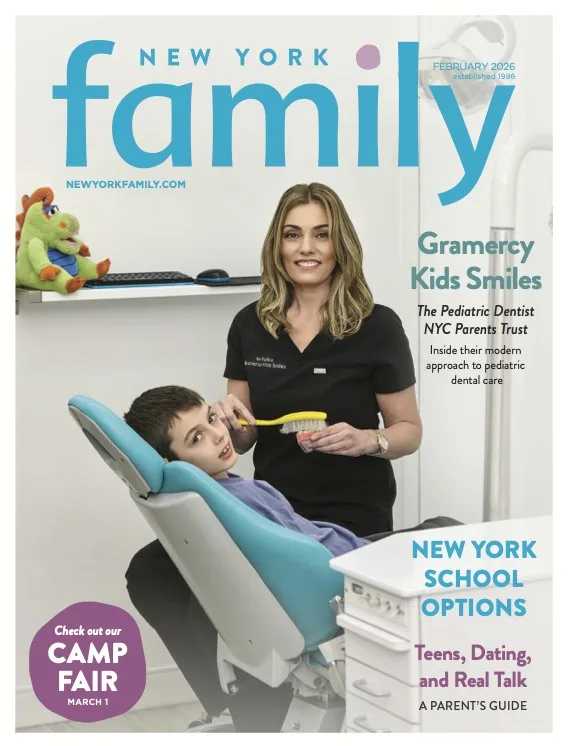Sending your child to school can feel like a mix of emotions – especially if they have severe food allergies, as the potential for accidental exposure is possible. But with the right tools and preparation, you can help set your child up for a successful and safe school year:
- Connect with school staff ahead of time.
Schedule a meeting with your child’s teacher, school nurses, as well as administrators so you can convey your child’s needs, how to handle potential exposure or reaction, and when medication should be used. This will ensure that the educators who will be with your child day-to-day are fully prepared.
- Develop an allergy emergency plan for school staff to have.
Your child’s allergy emergency plan should be fully up to date ahead of school beginning. Work with your healthcare provider to include a thorough description of allergens, symptoms of a reaction, clear instructions for treatment, as well as emergency contacts. Check out the most recently updated emergency care plans at Food Allergy Research and Education (FARE) and Asthma and Allergy Foundation of America (AAFA).
- Make sure your child has easy access to medication.
Ensure the epinephrine you provide to your child’s school is up-to-date and not expired. If they do not have a current epinephrine prescription or need to renew their current for the new school year, consider asking your doctor about neffy® (epinephrine nasal spray), which is needle-free and has a shelf life of 24 to 30 months from manufacture, depending on the dose. Additionally, make sure the school staff has clear instructions on how to administer your child’s epinephrine, and that you’re working together, so everyone understands their role.
- Empower your child to feel confident in speaking up.
Have open conversations with your child about what foods and allergens they should avoid, and how to confidently speak up if something feels off. These conversations will help prepare your child to know what to do in case of emergency and who they can go to for help.
“As both an advocate and parent to a child with severe food allergies, I deeply understand how important it is for kids to feel confident speaking up and advocating for their needs, especially when at school,” said Christine Creter, Strategist and Principal, Creter Group Inc., and Food Allergy and Eosinophilic Disorder Advocate. “Building strong connections with the school staff, including teachers and nurses, helps to ensure that children feel supported and safe. When we all work together, we can cultivate an environment where kids can focus on learning, growing, and having fun without the fear of having a severe allergic reaction.”
Stay prepared with the only needle-free epinephrine nasal spray, neffy, used for emergency treatment of allergic reactions, in adults and children aged 4 years and older who weigh 33 lbs. or greater.
WHAT IS neffy?
neffy is a nasal spray used for emergency treatment of allergic reactions including anaphylaxis, in adults and children aged 4 years and older who weigh 33 lbs or greater.
IMPORTANT SAFETY INFORMATION
What is the most important information that I should know about neffy?
neffy contains epinephrine, a medicine used to treat allergic emergencies (anaphylaxis). Anaphylaxis can be life-threatening, can happen in minutes, and can be caused by stinging and biting insects, allergy injections, foods, medicines, exercise, or other unknown causes.
Always carry two neffy nasal sprays with you because you may not know when anaphylaxis may happen and because you may need a second dose of neffy if symptoms continue or come back. Each neffy contains a single dose of epinephrine. neffy is for use in the nose only.
Use neffy right away, as soon as you notice symptoms of an allergic reaction. If symptoms continue or get worse after the first dose of neffy, a second dose is needed. If needed, administer a second dose using a new neffy in the same nostril starting 5 minutes after the first dose. Get emergency medical help for further treatment of the allergic emergency (anaphylaxis), if needed after using neffy.
Tell your healthcare provider if you have underlying structural or anatomical nasal conditions, about all the medicines you take, and about all your medical conditions, especially if you have heart problems, kidney problems, low potassium in your blood, Parkinson’s disease, thyroid problems, high blood pressure, diabetes, are pregnant or plan to become pregnant, or plan to breastfeed.
Tell your healthcare provider if you take or use other nasal sprays or water pills (diuretics) or if you take medicines to treat depression, abnormal heart beats, Parkinson’s disease, heart disease, thyroid disease, medicines used in labor, and medicines to treat allergies. neffy and other medications may affect each other, causing side effects. neffy may affect the way other medicines work, and other medicines may affect how neffy works.
What are the side effects of neffy?
neffy may cause serious side effects. If you have certain medical conditions or take certain medicines, your condition may get worse, or you may have more or longer lasting side effects when you use neffy.
Common side effects of neffy include: nasal discomfort, headache, throat irritation, chest and nasal congestion, feeling overly excited, nervous or anxious, nose bleed, nose pain, sneezing, runny nose, dry nose or throat, tingling sensation, including in the nose, feeling tired, dizziness, nausea, and vomiting.
Tell your healthcare provider if you have any side effects that bother you or that do not go away after using neffy.
These are not all of the possible side effects of neffy. Call your healthcare provider for medical advice about side effects. To report side effects, contact ARS Pharmaceuticals Operations, Inc. at 1-877-MY-NEFFY (877-696-3339) or the FDA at 1-800-FDA-1088 or www.fda.gov/medwatch.
Please see the full Prescribing Information and Patient Information for neffy.
©2025 ARS Pharmaceuticals Operations, Inc. All rights reserved. “neffy” and the neffy logo are trademarks or registered trademarks of ARS Pharmaceuticals Operations, Inc. NEF-US-0696 I 07/2025
Sponsored Content by neffy.
Psst… Check out Struggling to Sleep? 10 Sneaky Habits That Could Be Holding You Back














